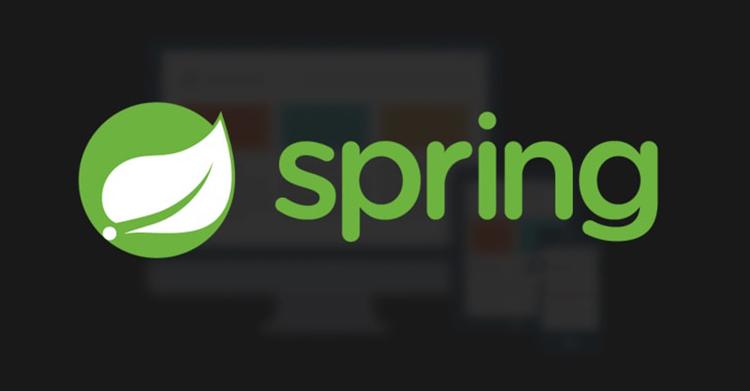
What makes Spring Framework an Ideal Choice for Java Enterprise Applications?
Java is a reputed programming language that is used widely across all development platforms comprising desktop, web, and mobile apps. But developers look for a robust and secure frameworks to boost the application’s functionality, efficiency, and user experience without any additional effort. The choice of frameworks differs from one developer to another as per their web application development. The stats mentioned on different websites reveal that Spring framework is the most preferred one apart from other application development frameworks.
Besides being lightweight framework, Spring support Java Application Development Company with enterprise application development by providing robust classes, features and tools. Developers can later run the Spring-based web applications on any device supporting Java Virtual Machine (JVM). The feature even offers portability to applications, and allows developers to select multiple deployment options like app server, cloud, and standalone apps. There are also numerous reasons why a large percentage of developers prefer Spring to other Java frameworks.
Reasons Why Web Application Developers Prefer Spring?
1. Modular Design
Developers implement POJOs without applying any EJB container product. The implementation of POJO makes the framework lightweight. Spring support developers to select from different classes and packages as per their development needs. Being organized modularly, it becomes easier for developers to choose only the desired classes and packages. The users can later select the classes needed by each project, and avoid the ones that are not relevant for the project.
2. Inversion of Control Containers
Spring offers feature to ease management of Java object lifecycle with the support of IoC containers. The developers apply the IoC containers to build, initialize and configure Java objects without providing additional code. Furthermore, they can configure the container just by loading an XML file. Similarly, objects can be accessed using either dependency injection or dependency lookup. The Spring containers make it easier for Java Developers to customize the application and integrate it smoothly with varying Java environments.
3. Object Relational Mapper (ORM)
Spring offers several APIs to work with renowned ORM frameworks like Hibernate, Oracle Toplink, Java Data Objects (JDO), and Java Persistence API (JPA). The Java developers can also avail the APIs offered by Spring to ease exception handling with multiple ORM frameworks. They can even take advantage of the ORM frameworks to run database operations without writing additional code.
4. Remote Access
Spring offers a wide array of APIs to ease development of remote-enabled services. Java Development Company uses the Spring Remote Access framework to integrate a range of RPC-based technologies available with Java platform. The framework further assists diverse remoting techniques including remote Method Invocation (RMI), Hessian, HTTP invoker, Burlap, JMS, JAX-WS and JAX-RPC. It supports developer to work properly on the application’s business logic without worrying about configuration issues and server operations.
5. Data Access
Apart from supporting different data access frameworks in Java, Spring also provides template class for every supported database framework. The template supports developers to work with the databases smoothly. They can further implement the data access framework offered by Spring to finish tasks including resource management, resource wrapping, exception handling, and transaction participation. The framework even support developers to take advantage of the APIs offered by each database framework.
6. Transaction Management Interface
The transaction management interface offered by Spring is consistent, and works in all environments in the Java platform. The programmers can use the transaction management interface for development of enterprise applications in Java to work effectively with local, global, and nested transactions. They can further implement the interface to boost the local transactions and optimize the global transactions down.
7. Object Relational Mapper (ORM)
Spring offers a wide array of APIs to work with recognized ORM frameworks comprising Hibernate, Oracle Toplink, Java Data Objects (JDO), and Java Persistence API (JPA). The Java developers can also leverage the APIs offered by Spring to streamline exception handling with different ORM frameworks. They can even take advantage of the ORM frameworks to carry out database operations without writing additional code.
8. Aspect Oriented Programming
Spring is integrated with aspect oriented programming (AOP) framework. This framework makes it easier for developers to decouple the code for diverse functionalities of the application by defining method-interceptors. It even supports developers to perform with cross-cutting concerns – functions spanning different points in the application in an effective manner. The developers can apply Spring AOC to keep the cross-cutting issues separated from the business logic layer of the Java application.
Frequently Asked Questions
1. Why is Spring framework so popular?
Spring is a robust, lightweight framework used for web application development. In broader terms, it is easy to say that the Spring framework is a well-defined tool supporting several web applications using Java as a programming language. The performance of the system got impacted due to the heaviness of the applications.
2. What are the benefits of using Spring framework?
Spring offers a lightweight container that is easy to activate without using web server or application server software. It offers remarkable support for IoC and Dependency Injection results in loose coupling. The Spring Framework supports JDBC framework that improves productivity and eliminates the error.
3. Why is Spring light weight?
Spring refers itself ‘lightweight’ as it doesn’t require all of Spring to use part of it. For instance, you can use Spring JDBC without Spring MVC. Spring offers multiple modules for different purposes; you can just inject dependencies according to your desired module.
Wrapping Up:
We discussed the benefits of implementing Spring framework in Java web development and how it is a perfect investment. The best part is it can support other frameworks as well without any complexity. It operates faster which is important for current scenarios including mobile computing, cloud computing, and social computing. You can hire Java Developer to create responsive, secure & robust web application for business expansion. Consult a professional development company like JavaIndia to achieve desired business results.

